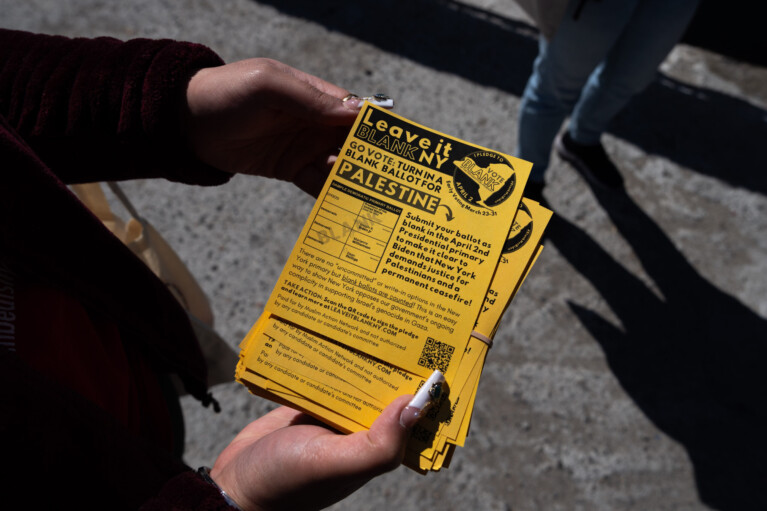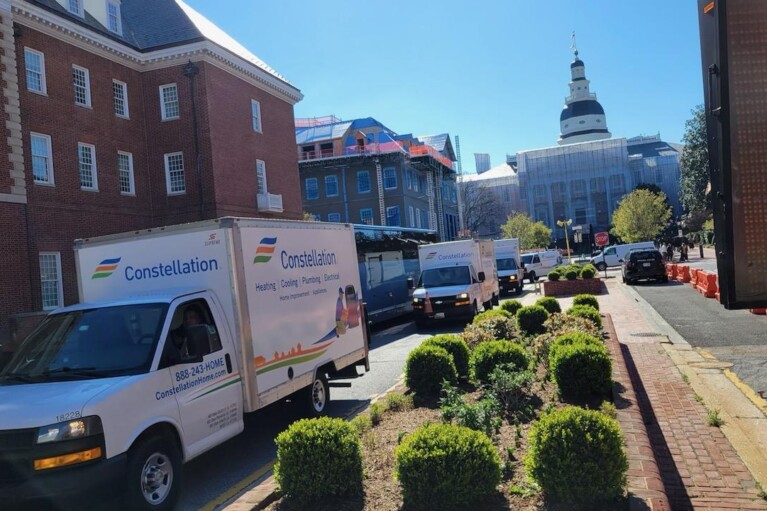Health advocates prep for ’23 session with ultimate goal of eliminating Md.’s uninsured population

Maryland health care advocates are lining up a list of priorities for the upcoming General Assembly session, which they hope will bring the state closer to their goal of ensuring that all residents have health insurance.
The advocates have a news conference scheduled for Tuesday in Baltimore to spotlight their agenda. They are hoping that whatever passes in the upcoming session will help shrink the state’s uninsured population, which currently stands at about 6%.
Vincent DeMarco, president of the Maryland Citizens’ Health Initiative, said the top priorities for 2023 are:
- Total funding for the state’s Prescription Drug Affordability Board. The board, set up by legislation in 2019, has been set up to help state and local governments reduce their prescription drug costs, and lawmakers may ultimately work to expand its scope so the savings are available to all residents. Gov. Larry Hogan (R) vetoed a funding bill for the new agency in 2020, and the COVID-19 pandemic also slowed the board’s progress. But now the board is meeting regularly and advocates are hoping to increase its budget so it can be fully operational.
- Health care subsidies for young adults. The legislature passed a subsidies law in 2021 that provided $20 million a year for two years to help lower-income adults ages 18-34 buy health insurance. The lawmakers who sponsored the original legislation, Sen. Brian Feldman (D-Montgomery) and Del. Ken Kerr (D-Frederick) will try to push for those subsidies to be expanded and extended in 2023.
- Provide outreach for small employers about health care coverage. Sen. Katie Fry Hester (D-Howard) and Del. Robbyn Lewis (D-Baltimore City) will sponsor legislation to appropriate $5 million annually to the Maryland Health Benefit Exchange to help small businesses register their employees for health insurance.
- Extend health care to undocumented immigrants who reside in the state. Sen. Clarence Lam (D-Howard), one of the bill’s sponsors, said that people deserve to be insured regardless of their immigration status. This legislation would allow undocumented immigrants to buy coverage from the Maryland Health Benefit Exchange.
- Automatically register Marylanders who receive SNAP benefits into Medicaid.
Del. Lorig Charkoudian (D-Montgomery), who is sponsoring the legislation to arrange the automatic enrollment for those receiving SNAP assistance, said the measure would make state government more efficient.
“I am wildly excited about the bill,” she said in an interview. “I’m very excited. This will help more people get access to the service.”
Gene Ransom, the CEO of MedChi, the Maryland Medical Society, said his organization supports closing the gap of uninsured Marylanders to zero, and said he believes many of the bills that the coalition of advocates is advancing will move the state closer to that goal.
According to Ransom, the priorities “will improve public health in Maryland and improve more complicated, more expensive treatment in the future because people don’t have health insurance and don’t get preventative care.”
Ransom is expected to join DeMarco and other advocates at the news conference Tuesday, which will be held at the Episcopal Diocese in Baltimore. Also scheduled to speak: Rev. Dr. Sandra Conner, President, Baptist Ministers’ Night Conference of Baltimore & Vicinity; Willie Flowers, President, Maryland NAACP; Ricarra Jones, Political Director, 1199SEIU MD/DC; Cathryn Paul, Director of Public Policy, CASA; and Nicole Stallings, Executive Vice President, Maryland Hospital Association.
DeMarco, who has worked on public health care campaigns in the state for decades, said he is excited about the priorities.
“This broad agenda will achieve our goal of ensuring all Marylanders have access to affordable insurance coverage and great health care,” he said in a statement. “This will help all Marylanders by reducing the costs we all pay to cover uncompensated hospital care.”
Health care policy debates in Annapolis will be taking place with a new governor — Democrat Wes Moore — after eight years of a Republican, Larry Hogan, in office. And the new chair of the House Health and Government Operations Committee, Del. Joseline Peña-Melnyk (D-Prince George’s), has been a key advocate for expanding health care access in the state.
Some progressive activists are hoping the time has come to debate a “Medicare for All,” single-payer health care plan in Annapolis.
“I think there’s going to be a lot of discussion in Maryland about health care” in 2023, Del. Gabriel Acevero (D-Montgomery), who plans to introduce single-payer legislation, said this week. “We really have the opportunity to do something big and ambitious on health care in Maryland, and I hope we’ll go as far single-payer health care.”
Josh Kurtz contributed to this report.




 Creative Commons Attribution
Creative Commons Attribution